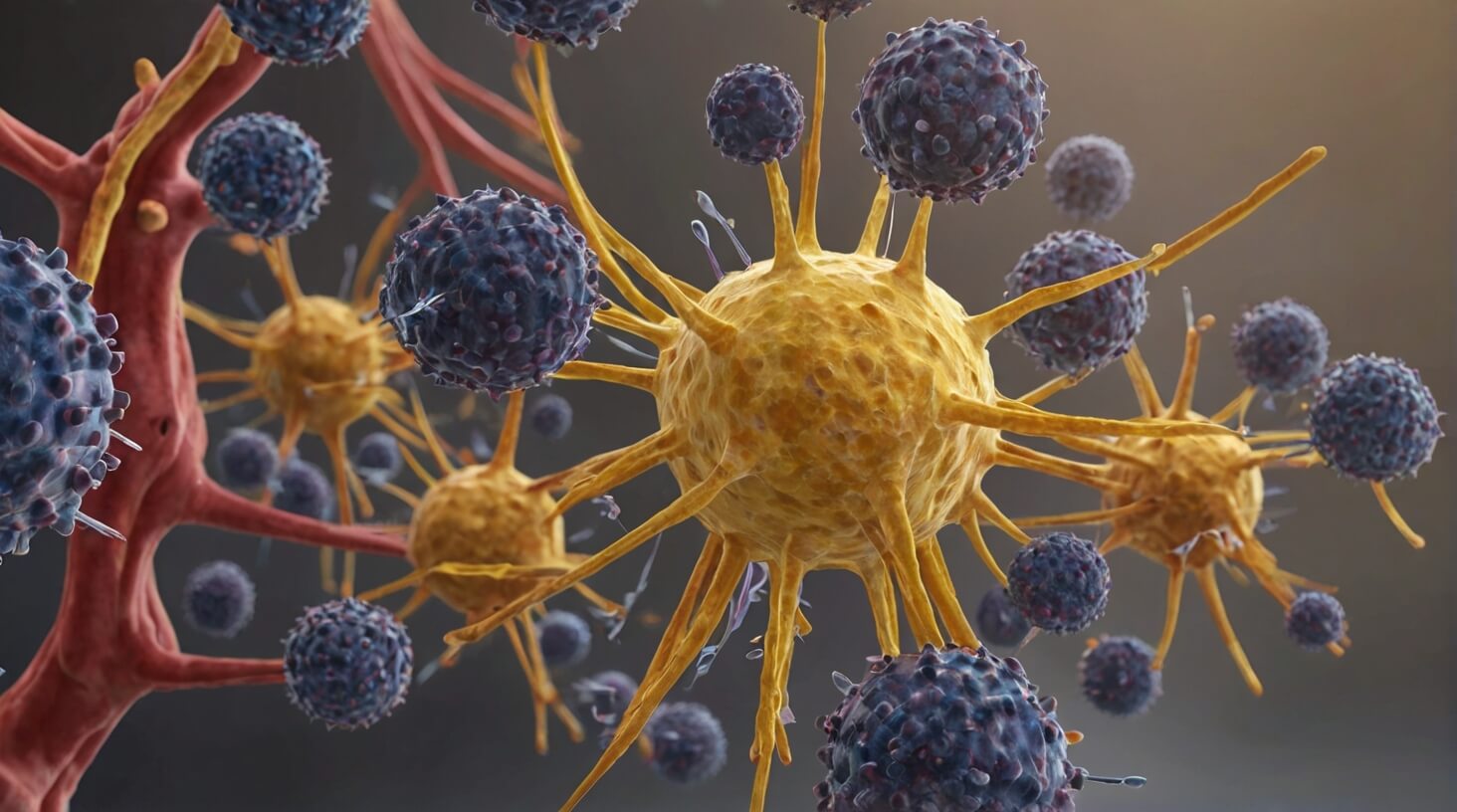You’ve likely heard the theory that a good night’s sleep can bolster your immune system, but have you considered the extent of this truth? As you nestle into your covers each night, your body embarks on a complex journey of repair and defense, one that’s essential for your well-being. The intricate dance between sleep and your immune response is a critical aspect of health that’s often underestimated. Sleep isn’t merely a passive state; it’s a period where your body’s defenses gear up, fighting off potential threats and rejuvenating from the day’s battles. Without enough shut-eye, your immune system may falter, leaving you more susceptible to the very ailments you’re trying to avoid. Stay with this conversation to uncover how the silent hours of the night could be one of your strongest allies in maintaining robust health.
Key Takeaways
- Adequate sleep promotes the production of cytokines and antibodies, which are crucial for immune system function.
- Sleep deprivation impairs the immune system and increases the risk of infections and chronic diseases.
- Proper sleep enhances the activity of natural killer (NK) cells, which play a crucial role in identifying and destroying compromised host cells.
- Restorative sleep is essential for maintaining a well-functioning immune system and overall well-being.
Understanding Immune Functions

Delving into the complexities of the immune system, it’s essential to understand how both the innate and adaptive defense mechanisms operate to protect your body against pathogens. The immune system, comprising a network of immune cells and molecules, is your physiological fortress. Leukocytes, or white blood cells, are pivotal components of this defense network, continuously monitoring for signs of infection or injury.
Innate immunity serves as the first line of defense, deploying a rapid, non-specific response to invaders. This includes physical barriers such as the skin and mucous membranes, as well as immune cells like natural killer (NK) cells, which identify and destroy compromised host cells. Concurrently, cytokine production is initiated, modulating the activity of immune cells and orchestrating an appropriate response.
The adaptive immune system, conversely, involves a more sophisticated, targeted approach. It’s characterized by its ability to remember previous invaders, conferring long-term protection through the generation of memory cells. When a known pathogen is detected, these memory cells expedite a robust immune response.
However, sleep deprivation can significantly impair these immune functions. It induces alterations in both innate and adaptive immune parameters, resulting in a compromised immune response. The effects of sleep deprivation extend to a reduction in NK cell activity and deregulation of cytokine production, fostering a chronic inflammatory state. This not only diminishes your body’s capacity to fend off infections and respond to inflammatory insults but also elevates the risk for chronic diseases.
Understanding these mechanisms highlights why adequate sleep is imperative for maintaining a well-functioning immune system. As someone committed to the well-being of others, it’s crucial to recognize and address the impact of sleep deprivation on immune health.
Sleep’s Role in Immunity
Understanding the role of sleep in immune function is crucial, as adequate rest bolsters the body’s capacity to mount an effective defense against pathogens. When you sleep, your body isn’t just shutting down to rest; it’s engaging in a complex series of processes that are vital for the optimal functioning of the immune system.
Here are some key points to consider:
- Production of Antibodies: Sleep promotes the production of cytokines and antibodies, critical components in the immune response to infection.
- NK Cell Activity: Natural Killer (NK) cell activity, an integral part of immune defense, is enhanced by proper sleep, aiding in the detection and destruction of infected cells.
- Sleep Deprivation: Inadequate sleep can impair the immune system, leading to increased susceptibility to illnesses and altering immune responses.
Delving deeper, sleep is shown to support the immune system through the regulation of immune cells. During sleep, the body increases the production of certain immune cells while decreasing the levels of pro-inflammatory cytokines. This suggests that sleep serves as a modulator, fine-tuning the immune responses.
The impact of sleep deprivation is equally significant. It can lead to a chronic inflammatory state, which affects the immune system’s effectiveness. This heightened state of inflammation contributes to a greater risk of infections and inflammatory-related chronic diseases.
Furthermore, the consequences of sleep deprivation are not easily reversed. While recovery sleep may offer some benefits, the scientific community is still exploring its efficacy in restoring immune function. Understanding the complex relationship between sleep and the immune system is essential, especially for individuals dedicated to caring for others. Ensuring adequate rest is a fundamental step in maintaining health and combating disease.
Consequences of Sleep Deprivation

Sleep deprivation’s detrimental effects on the immune system manifest as both an immediate alteration in immune parameters and a longer-term risk of chronic inflammation and disease. Your consistent lack of sleep, even partial sleep deprivation, can lead to significant changes in immune function. These changes are characterized by a decrease in NK cell activity, which plays a crucial role in the body’s first line of defense against pathogens. Additionally, sleep loss can impair the adaptive immune response, notably affecting T cells, which are essential for identifying and eliminating infected cells.
The relationship between sleep deprivation and sleep is complex and bidirectional. Not only does inadequate sleep affect immune cells, but changes in immune function can also disrupt sleep patterns, creating a negative feedback loop. When you experience sleep deprivation, your body’s inflammatory response is heightened, leading to a state of chronic inflammation. This condition is particularly concerning because it’s associated with a higher risk for various chronic diseases, including cardiovascular disease, diabetes, and obesity.
The health consequences of chronic sleep loss are far-reaching. It’s not just about feeling tired; it’s about compromising your body’s inherent ability to heal and protect itself. In a society where you’re often expected to prioritize productivity over rest, it’s essential to recognize that sufficient sleep is a cornerstone of good health and an effective immune system. By understanding the science behind sleep and its impact on immunity, you can better serve others by advocating for the importance of restorative sleep as a pillar of overall well-being.
Sleep and Disease Resistance

While you’re aware that sleep deprivation can weaken your immune system, it’s also critical to consider how adequate rest enhances your body’s resistance to disease. Your immune system relies heavily on sleep to function optimally. During slumber, your body orchestrates a symphony of immune responses, with leukocytes playing a key role in warding off pathogens. The scientific community recognizes three pivotal ways that sleep fortifies your disease resistance:
- Leukocytes: These white blood cells are essential in fighting infections. Adequate sleep ensures their effective deployment against invaders.
- NK Cell Activity: Sleep promotes natural killer (NK) cell activity, crucial for combating cancer cells and controlling early stages of infections.
- Cytokine Production: Sleep enables the production of cytokines, which are integral for inflammatory responses and immune system communication.
Sleep disorders and chronic sleep deprivation disrupt your circadian rhythm, which in turn impairs immune function. This impairment can manifest as an increased susceptibility to the common cold or more serious complications such as systemic inflammation, often leading to chronic diseases. Scientific analysis reveals that the relationship between sleep and the immune system is bidirectional; while sleep affects immune competency, the immune system can influence sleep patterns, especially during illness.
Furthermore, the healing process in ICU patients can be compromised by poor sleep, highlighting the need for sleep-friendly environments in healthcare settings. By understanding and supporting the intricate dance between sleep and immune health, you are better equipped to serve those in your care, helping them to resist illnesses and recover from health challenges more effectively.
Enhancing Immunal Memory
Bolstering your body’s immunological memory, adequate sleep serves as a cornerstone for quicker and more robust immune reactions when facing familiar pathogens. The functioning of the immune system, particularly the adaptive immunity, hinges on this enhanced immunological memory. During sleep, especially slow wave sleep, a pro-inflammatory endocrine environment is established, which is crucial for the consolidation of immunological memory. This phase is characterized by effective antigen presentation—a key step in immune activation that ensures a targeted response upon subsequent exposures to the same pathogens.
Furthermore, sleep facilitates the optimization of leukocyte function, including NK cell activity, which plays a pivotal role in the early stages of immune response. The relationship between sleep and the immune processes is intricate, yet indispensable for maintaining an efficient defense mechanism. By fostering a restorative sleep pattern, you’re enabling your body to produce long-lasting immunological memory, which is essential for a swift and effective adaptive immune response.
Recovery sleep after periods of sleep deprivation can partially recalibrate the immune system. It has been observed to influence various immune parameters, such as total leukocytes, neutrophils, and CD4 T cells. Moreover, IgA levels, which are integral to mucosal immunity, may also be affected. While the impact of recovery sleep is complex and sometimes inconsistent, targeted therapies like cognitive behavior therapy have shown promise in reversing the adverse immune changes associated with sleep deprivation by improving sleep patterns and reducing inflammatory markers.
Strategies for Better Sleep
Recognizing the critical role of restorative sleep patterns in enhancing immunological memory, you can adopt several strategies to ensure a night of quality sleep that supports your immune system. The National Sleep Foundation provides guidelines on the optimal amount of sleep required for different age groups, emphasizing the necessity for adults to aim for 7-9 hours nightly. Adhering to these recommendations not only improves sleep health but also bolsters the body’s defense mechanisms.
To further enhance your sleep quality, consider these scientifically-backed methods:
- Establish a consistent sleep schedule, reinforcing your circadian rhythm and promoting regular sleep.
- Engage in cognitive behavioral therapy for insomnia (CBT-I) if you’re struggling with sleep disturbances.
- Optimize your sleep environment by minimizing noise and light, and investing in a comfortable mattress and pillows.
A detailed approach to sleep hygiene involves several factors that contribute to healthy sleep. For instance, limiting exposure to bright light and screens before bedtime assists in the natural increase of melatonin, a hormone critical for initiating sleep. Additionally, avoiding stimulants such as caffeine and nicotine in the hours leading up to sleep can prevent disturbances in your sleep cycle.
If you’re experiencing persistent sleep deprivation, it might be time to consult a Sleep Medicine specialist. They can provide tailored advice and interventions, such as CBT-I, which has proven effective in addressing insomnia and improving sleep patterns. By implementing these strategies and prioritizing sleep health, you’ll be taking a significant step toward supporting your immune system and overall well-being.











